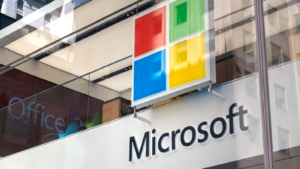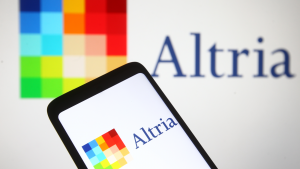One place to look is a company’s free cash flow (FCF). Free cash flow is the cash that a company has left over in its operating cash flow after it deducts capital expenditures and working capital requirements. Companies can use this “free” cash for many purposes including paying dividends, buying back shares, making acquisitions, paying down debt or just letting it settle on the balance sheet.
When interest rates were at or near zero, money and debt were free. That meant investors were less concerned about investing in unprofitable companies. But even if interest rates move lower, the days of near-zero interest are unlikely to come back anytime soon.
That means one place to look for stocks to buy as the Fed turns dovish is companies that won’t have worries about cash. Here are three stocks to consider.
Palo Alto Networks (PANW)

Palo Alto Networks (NYSE:PANW) is one of the leading cybersecurity companies. The company recently adopted a platformization strategy in which it will allow existing customers free access to certain elements of its platform with the expectation of building annual recurring revenue (ARR) as the company builds market share.
It’s a bold strategy that may affect growth in the short term, which is a reason why PANW stock is down 14.1% in the three months ending May 3, 2024. But the need for cybersecurity will make cybersecurity a must-have expense for Palo Alto’s growing customer base.
And Palo Alto is well capitalized to weather any hiccups. In the company’s second quarter 2024 earnings report delivered in February 2024, the company reported $655 million in free cash flow. It also expects full-year free cash flow yield to come in between 38% and 39%. A company’s free cash flow yield is divides the last 12 months of its free cash flow by the market value of the stock.
In November 2023, Palo Alto announced board approval to repurchase $316.7 million of its stock.. This is an addition to Palo Alto’s existing $3.3 billion buyback program which was authorized in 2019. Palo Alto Networks is not currently a dividend payer.
Microsoft (MSFT)

Microsoft (NASDAQ:MSFT) is one of the few Magnificent 7 stocks that’s continuing to grow in 2024. MSFT stock is up more than 33% in the last 12 months, which outpaces the S&P 500. The company’s product offerings touch every category in the technology sector that is expected to grow in the next 20 years.
The company’s expansive reach includes cloud computing and artificial intelligence. In its most third quarter earnings report for fiscal year 2024, Microsoft generated $21 billion in free cash flow which was up 18% due to its spending in the cloud and AI.
The tech giant continues to buyback shares as part of a $60 billion buyback plan authorized by the company’s board in 2021. And Microsoft is also nearing dividend aristocrat status. The company has increased its dividend for 22 consecutive years.
At a time when growth will get tougher to come by, Microsoft is a company that investors can continue to generate cash and use it to grow the business while still rewarding shareholders.
Altria (MO)

Less risk-tolerant investors may want to consider a stock like Altria (NYSE:MO). You may know it as one of the leading manufacturers of cigarettes and smokeless products. The company has solid, but not spectacular growth. But what it lacks in growth, it makes up for in cash.
For the full year 2023, Altria generated $9.09 billion in free cash flow. And in the first quarter of 2024, the company generated over $2.8 billion in FCF.
Over the last five years, Altria has returned $37.5 billion in cash to shareholders. For example, the company completed its previously authorized $1 billion share buyback program by paying off 22.7 million shares.
However, one of the more compelling ways Altria uses its free cash flow is its high-yield dividend. As of May 3, 2024, the company’s dividend yield was 8.99%. Altria is also a dividend king that has raised its dividend for 55 consecutive years. The company recently announced a progressive dividend goal. In line with that, the company raised its dividend per share by 4.3%.
On the date of publication, Chris Markoch did not have (either directly or indirectly) any positions in the securities mentioned in this article. The opinions expressed in this article are those of the writer, subject to the InvestorPlace.com Publishing Guidelines.
Chris Markoch is a freelance financial copywriter who has been covering the market for over five years. He has been writing for InvestorPlace since 2019.
